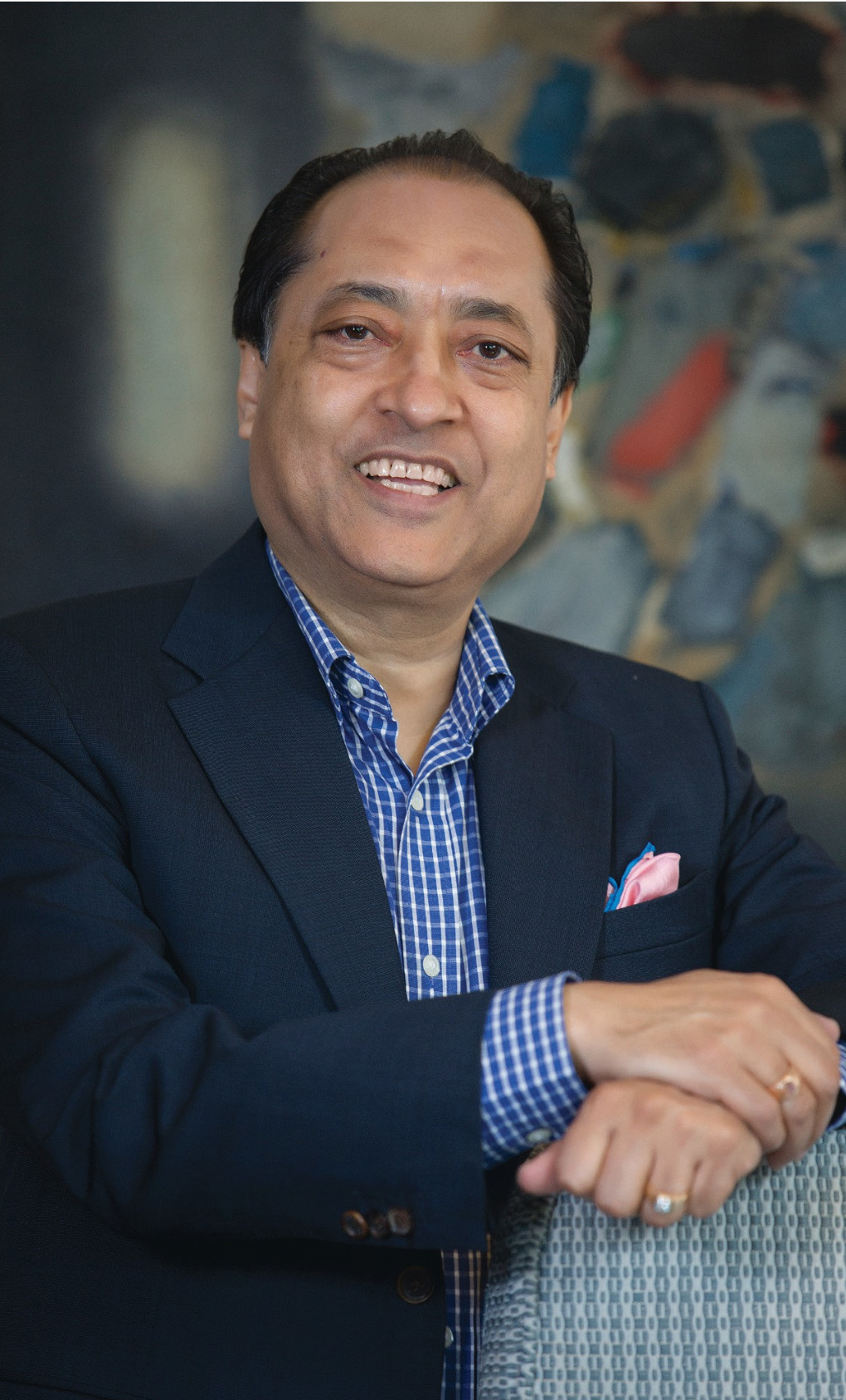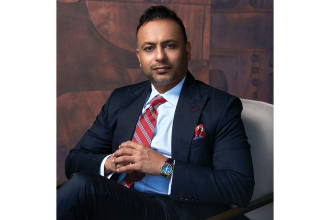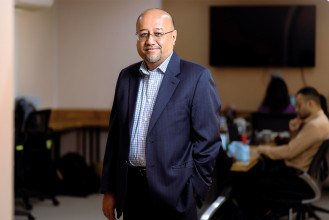
Prithvi Bahadur Pandé, Chairman of Nepal Investment Bank Limited (NIBL) and a renowned heritage conservationist, says that there are three different phases in everyone’s life, learning, earning and giving back. “All of us get educated first, then we start earning out of it, and finally in the later stages of life, we all give back. I have now reached that stage,” he states. Pandé has spent more than three decades of his life in the banking sector. He worked for Nepal Rastra Bank (NRB) for 13 years, founded the Himalayan Bank Limited and spent another 12 years of his life there. After leaving Himalayan Bank, Pandé has been at the forefront of NIBL for almost 16 years. In recent years, Pandé’s attention has shifted from banking to infrastructure development. “I am very passionate and enthusiastic about infrastructure development and I feel that the next big investment has to be in the area of infrastructure. Tourism and hydropower are Nepal’s biggest potentials so I am focusing on both,” he shares. Pandé is also the Chairman of Himalayan Infrastructure Fund, a private equity company, through which he and his team invest in hydropower projects.
Current Projects Thamel’s Chhaya Centre Shopping Complex and Hotel, which is in its finals stages of construction, is Pandé’s first tourism venture. The hotel has been undergoing construction for the last three years and will be completed in 2018. The hotel will have 200 rooms, a multiplex with cinemas and shopping among other services. “The 14-storey hotel will be targeted at young customers, mainly from India and China,” he informs. Pandé has also signed an agreement with Starwood hotels for building Agartha Nagarkot, a deluxe five star 72-room hotel cum spa. “The work is ongoing with detailed planning to be completed soon. We will commence construction next year,” he says. Another sector that is receiving this banker’s serious attention is hydropower. Through Himalayan Infrastructure Fund, Pandé has made investments in several hydro power projects. A 22MW Bagmati Project in Sisneri is under development with the tunnelling halfway through. The versatile Pandé is humble about his business expertise saying that he wants to start small and learn the ropes first. The company has also received license for Nilgiri 1 and Nilgiri 2 hydro projects, of 38 and 62 MW capacities and will be completed within four years. “Upper Rohughat and Mandale, of combined capacity of 85 MWs are also in the pipeline. In the next five years, we will be producing 500 MW, and my aim is to generate 1000 MW of energy within a decade. It will be a huge contribution to the country,” says Pandé quietly ambitious.
The Beginnings Pandé was born in August 1954 in Naya Bazar of Kathmandu to late Sardar Bhim Bahadur Pandé and Chhaya Devi Pandé. His father was a government officer who served as Secretary with various ministries and later became the Ambassador to India and Germany. Pandéy spent a big part of his childhood in these countries, and he received his schooling overseas as well. “After school, I wasn’t sure what I wanted to do. My father advised me to pursue Chartered Accountancy. He always taught me to help the country, and that’s one lesson I will never forget,” recalls Pandé. He completed his CA degree in 1978 from New Delhi. “I was probably the 12th or 13th CA in Nepal and it was a very prestigious degree back then. NRB had advertised for a CA at the same time, so I immediately joined NRB owing to its high reputation,” he recalls. This was the the beginning of a long and fulfilling banking career. Pandé says that he learnt everything there was to know about banking during his 13 years with NRB. Later, he dreamt of opening a bank which was quite a big dream then. His journey started with Himalayan Bank Limited in 1992 at an investment of 30 million rupees. “There were very few private banks and all of them were foreign led. Himalayan Bank was the first bank with majority share of Nepalis and managed by Nepalis,” says Pandé. His efforts bore fruits and the bank is extremely successful even today. He then joined NIBL in 2001 as Executive Director, and later became the Executive Chairman of the bank.
According to Pandé, the most important thing in life is to work consistently and to move ahead. “Being in the same position for a long time makes you stagnant and less creative. New challenges excite me,” he says. Tourism “We have managed to destroy Kathmandu, a city of heritage. We took a beautiful city and destroyed it with pollution, traffic and congestion, and population pressure. This is all owing to centralisation. I hope for decentralisation from the new constitution but it will take time,” says Pandé, disheartened by the present state of the capital. Pandé believes that tourism is the only sector that can make Nepal prosperous. “We are blessed naturally and geographically. People who say Nepal is a poor country are completely wrong. We are poor because we haven’t managed our resources properly, we are bad managers. All countries around the world identified their resources and utilised it and became rich. Our resource is our climate, the natural resources, the geography and the topography. In all these, we are really rich,” he says. For tourism to sustain, Nepal needs to focus chiefly on India and China, declares Pandé. “We really don’t need to go beyond that. These tourists spend more money, and they are more in number. Tourists from other countries could just be an icing on the cake,” he elaborates. Pandé believes that another key to improving tourism is to get more airlines coming into Nepal. “The major impediment for development in tourism is our only international airport. It is struggling to cater to even 700,000 tourists; it definitely can’t handle tourists in millions. So Pokhara and Bhairahawa airports are really critical for the purpose. The government should pay serious attention in this regard,” he opines. The private sector has finally kicked in and is doing its best, but the government has failed us completely, states to the veteran banker. “Politicians only agree to disagree. They are the ones responsible for the status of the country. Politicians have become an embarrassment. In the last 27 years, after the restoration of democracy, we haven’t been able to attain anything, and our leaders and politicians are to blame for that. They are the worst managers ever,” says Pandé emitting dissatisfaction.
Art & Heritage Pandé is an art aficionado and an avid art collector and opines that art and culture is very important for a country, and it must be maintained. “I find joy in promoting art, culture and heritage. I have been collecting art since 1995. Nepali art used to be undervalued, but lately it is getting the value and recognition it deserves, says Pandé who is also the Treasurer of Nepal Art Council. He also has plans of establishing a foundation for promoting art at the upcoming Chhaya Centre. He will donate a good part of his collection to the foundation. “I believe that art should be enjoyed by everyone, so I am donating some of the artworks for the public to see and appreciate at the 5000 sq ft art gallery at Chhaya Centre,” he shares. Heritage conservation is huge passion for Pandé. With NIBL and Kathmandu Valley Preservation Trust, he has worked to renovate and restorate various heritage sites such as Sundari Chowk in Patan and Kaal Bhairav at the Kathmandu Durbar Square. “Kathmandu valley’s identity is its rich culture and heritage. If we don’t preserve it, it will be like any other place. Kathmandu has to offer more per square kilometre than any other city in the world, but it’s all slowly disappearing. We have to preserve it for our future generations,” he says.
Education Pandé wants to enter the education sector. He has recently started an online education platform with Darden School of Business, University of Virginia, USA. “We will soon offer online business courses and will also provide classrooms where students can learn and meet. It will be different from other online education systems,” he informs. The future will also see him expand his hospitality business in Pokhara and Lumbini.
Work & Personal Mantra “I got this far by working hard, by putting in a lot of time and effort. Nothing happens overnight, and there is no substitute for hard work. Luck might play a certain role, but in the end, it is basically your effort, the long hours you put in, and hard work that guarantees success,” says Pandé. He wishes to stay productive as long as he can, and wants to contribute to the development of the country. “Making money is just a secondary goal. It is chiefly about how you can help the country and in Nepal it can be best done by creating employment opportunities for Nepalis. “Nepal isn’t poor in any regard, it’s just mismanaged. Nepalis do not need to suffer overseas if we can provide them with a good employment here, that will be the biggest contribution to the nation and people,” he states.




-1767340083.jpg)
